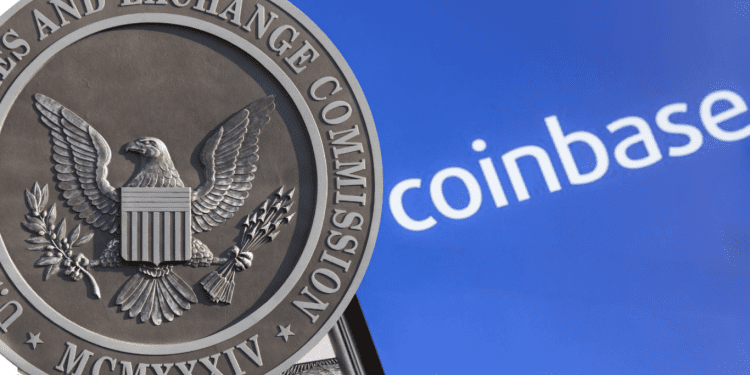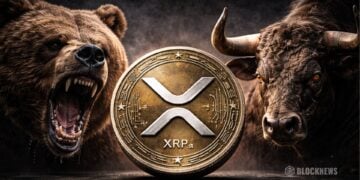- Coinbase CEO Brian Armstrong says the company has a good relationship with the SEC and the staff.
- Coinbase will continue to work with regulators worldwide.
- According to Armstrong, his company is interested in putting digital assets under the “regulatory perimeter” of the SEC.
During an interview on Wednesday, March 1, on Bloomberg TV, Brian Armstrong stated that the company’s interests align with those of the Securities and Exchange Commission (SEC), the federal body in charge of safeguarding U.S. investors.
Armstrong mentioned that Coinbase is the only publicly traded cryptocurrency exchange in the United States. When asked if he thinks that the conversations between Coinbase and the SEC have gotten more or less contentious over the years, the crypto mogul said:
“We have a good relationship with the SEC commissioners and staff.”
The CEO of Coinbase, a San Francisco-based exchange, emphasized this relationship by asserting that he has also met with the Chairman of the SEC, Gary Gensler. He added:
“We’re going to continue to invest in those relationships.”
According to Armstrong, the interest of Coinbase to bring the digital asset market within the “regulatory perimeters” aligns with those of the SEC. He said that doing so would bring about ‘good consumer protection.’
However, the CEO pointed out the importance of preserving the ‘innovation potential’ of the cryptocurrency industry.
Armstrong claimed that the crypto exchange’s investigative subpoenas received from SEC were “really just requests for information.”
Regarding ‘dialogue with regulators, ‘ the exchange CEO said:
“We’re in dialogue with regulators, not only here in the U.S., at the state and federal level, but really around the world. We’re in Europe, Singapore, and Australia, except for Canada, and many different markets worldwide. So, I think subpoenas are an important part of the process. That’s them asking us a question and saying we’d like more information on this, and we’re happy to do that”.
SEC Increase Scrutiny of Digital Assets Firms
Regulators have given companies associated with digital assets increased scrutiny since the collapse of the cryptocurrency exchange FTX last November. As a result, they have taken enforcement actions against firms that they believe are violating securities regulations.
The SEC fined Sa. Francisco-based cryptocurrency exchange Kraken $30 million in early February for failing to list its staking-as-a-service program as a security. Following the settlement terms, Kraken agreed to discontinue its staking service in the United States.
On January 19, The US SEC announced in a press release that it had penalized cryptocurrency lending firm Nexo for marketing and selling unregistered securities. Nexo was fined $45 million for failing to register the offer and sale of Earn Interest Product (EIP), a cryptocurrency lending product that promised returns on deposited digital assets.
Then SEC filed a lawsuit against Terraform Labs in mid-February. Terraform Labs created digital coins LUNA and TerraUSD (UST), which failed last spring and led to a more considerable slump in cryptocurrency prices.
Criticisms Against SEC’s Move
Following the settlement, the CEO of Kraken, Jesse Powell, expressed his sentiments on Twitter, saying that the SEC’s so-called regulation by enforcement approach neither benefits the crypto industry nor its customers.
Paul Grewal, the Chief Legal Officer of Coinbase, has also criticized the SEC’s approach to regulating digital assets and any associated goods and services. During Coinbase’s most recent earnings call with shareholders, Grewal said:
“The public shouldn’t have to parse complaints in federal court to understand what a regulator expects.”
In his tweet on February 9, the Coinbase CEO reaffirmed his position on the SEC’s recent decision to classify Kraken’s staking product as a security, saying that staking shouldn’t be treated as a security amid a broad regulatory crackdown.














